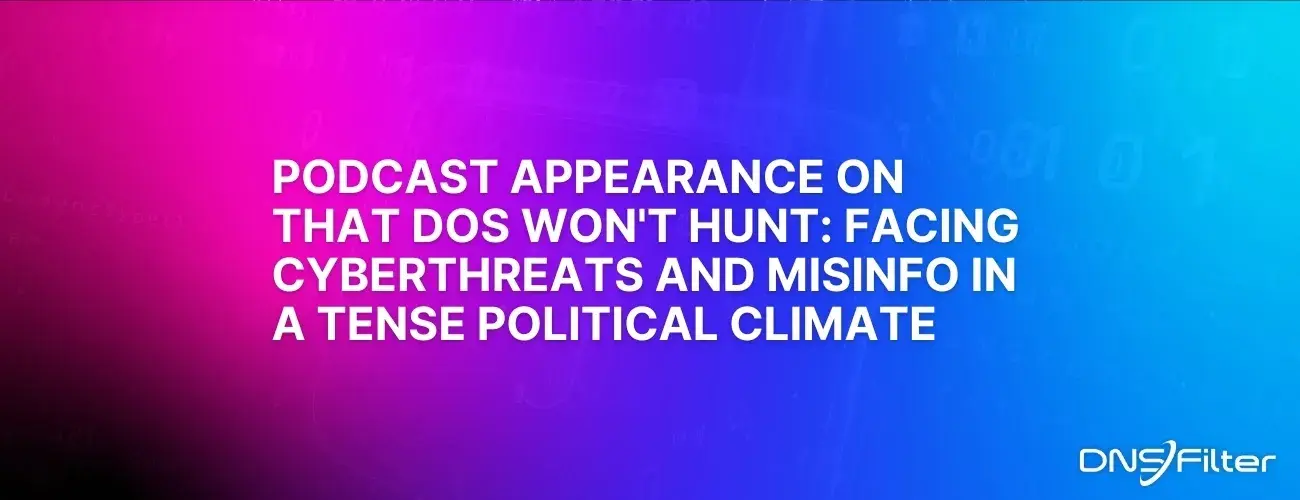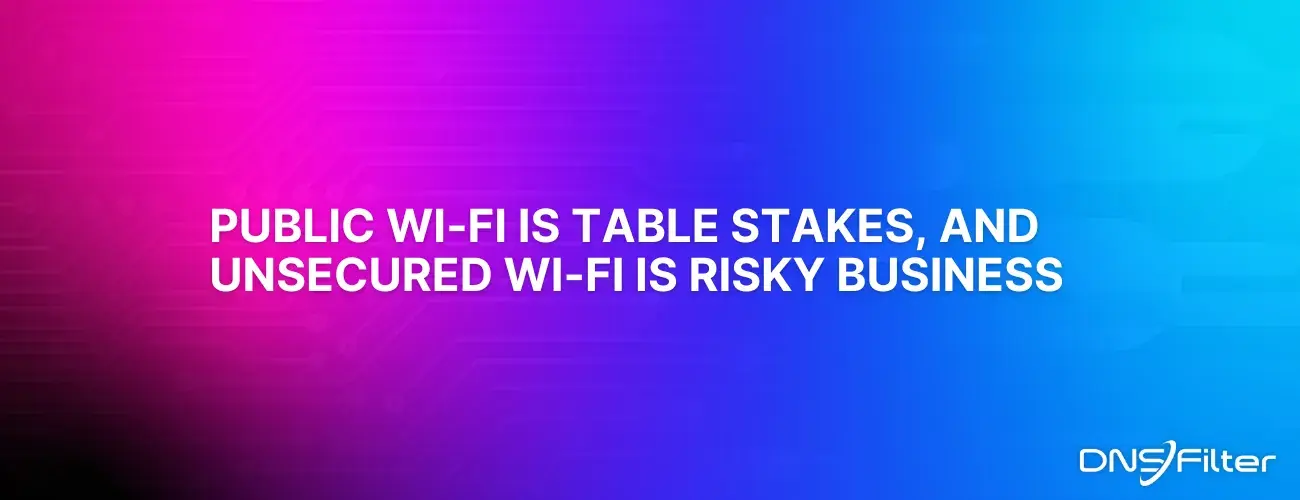Share this
DC Startup Casts an AI Net to Stop Phishing and Malware
by Admin on Oct 29, 2019 12:00:00 AM
When the price went way up on a key service, a small Washington, D.C., firm was using to protect its customers’ internet connectivity, the company balked.
After not finding a suitable alternative, the company decided to build its own. The result was a whole new business, called DNSFilter, which is casting a wide net around the market to combat phishing and malware.
Its innovation: It ditched the crowdsourcing model that has served for more than a decade as the bedrock for identifying whether websites are valid or corrupt. It opted, instead, for GPU-powered AI to make web surfing safer by identifying threats and objectionable content much faster than traditional offerings.
Share this
 Podcast Appearance: Facing Cyberthreats and Misinfo in a Tense Political Climate
Podcast Appearance: Facing Cyberthreats and Misinfo in a Tense Political Climate
In this episode of DOS Won’t Hunt, Eric Wenger, senior director for cyber and emerging tech policy with Cisco; Roman Arutyunov, co-founder and senior vice president of products with Xage Security; Dennis Dayman, CISO with Code42; TK Keanini, CTO with DNSFilter; and Akash Agarwal, director of engineering and DevSecOps with LambdaTest, discuss ways to address possible cyber threats and misinformation in the workplace during this intensely partisan ...
 Public Wi-Fi is table stakes, and unsecured Wi-Fi is risky business
Public Wi-Fi is table stakes, and unsecured Wi-Fi is risky business
While public Wi-FI can be very convenient, both for users and providers, it also introduces a number of security challenges. Unsecured or under-secured public Wi-Fi networks can expose users to cyber threats like identity theft, financial fraud and data breaches. Once they are connected, attackers can monitor all traffic, extract sensitive data, and even inject and spread malware.
 CIO Influence Interview with TK Keanini, CTO of DNSFilter
CIO Influence Interview with TK Keanini, CTO of DNSFilter
TK is a leader in technical innovation, specializing in the identification and protection of intellectual properties. With a background in game development and information security, he balances design’s social and technical aspects. Known for his ability to acquire top talent and build high-performing teams at DNSFilter.



